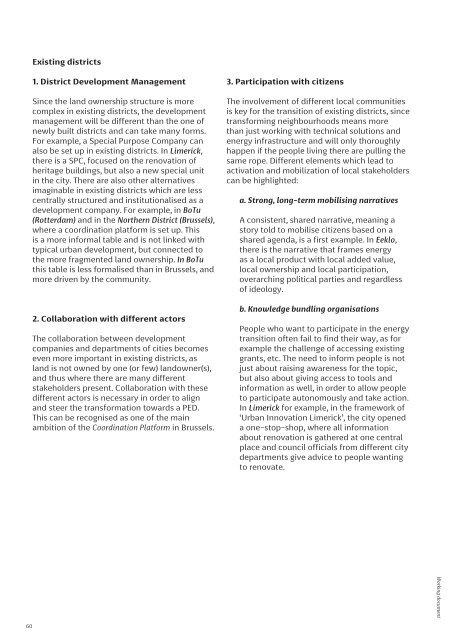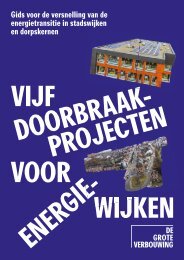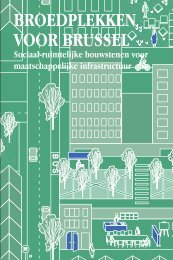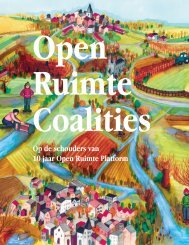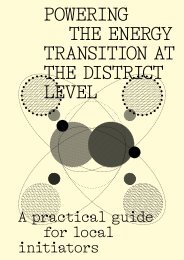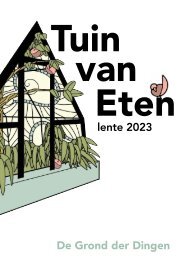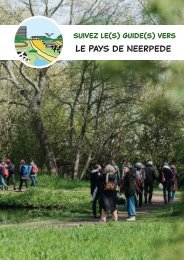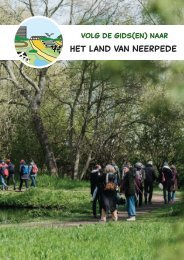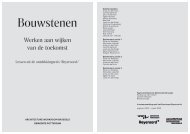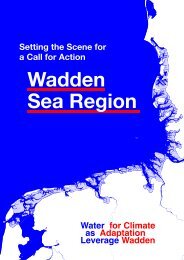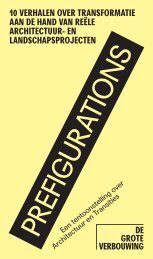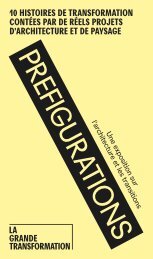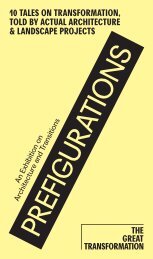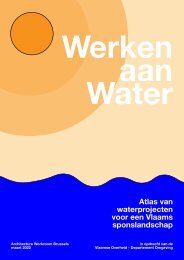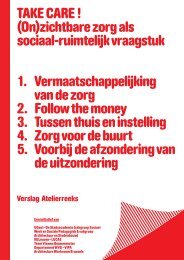Cities4PEDs Atlas_November 2021.pdf
Atlas - From 7 case interviews to recurring strategies and PED relevant aspects
Atlas - From 7 case interviews to recurring strategies and PED relevant aspects
- No tags were found...
Create successful ePaper yourself
Turn your PDF publications into a flip-book with our unique Google optimized e-Paper software.
Existing districts<br />
1. District Development Management<br />
Since the land ownership structure is more<br />
complex in existing districts, the development<br />
management will be different than the one of<br />
newly built districts and can take many forms.<br />
For example, a Special Purpose Company can<br />
also be set up in existing districts. In Limerick,<br />
there is a SPC, focused on the renovation of<br />
heritage buildings, but also a new special unit<br />
in the city. There are also other alternatives<br />
imaginable in existing districts which are less<br />
centrally structured and institutionalised as a<br />
development company. For example, in BoTu<br />
(Rotterdam) and in the Northern District (Brussels),<br />
where a coordination platform is set up. This<br />
is a more informal table and is not linked with<br />
typical urban development, but connected to<br />
the more fragmented land ownership. In BoTu<br />
this table is less formalised than in Brussels, and<br />
more driven by the community.<br />
2. Collaboration with different actors<br />
The collaboration between development<br />
companies and departments of cities becomes<br />
even more important in existing districts, as<br />
land is not owned by one (or few) landowner(s),<br />
and thus where there are many different<br />
stakeholders present. Collaboration with these<br />
different actors is necessary in order to align<br />
and steer the transformation towards a PED.<br />
This can be recognised as one of the main<br />
ambition of the Coordination Platform in Brussels.<br />
3. Participation with citizens<br />
The involvement of different local communities<br />
is key for the transition of existing districts, since<br />
transforming neighbourhoods means more<br />
than just working with technical solutions and<br />
energy infrastructure and will only thoroughly<br />
happen if the people living there are pulling the<br />
same rope. Different elements which lead to<br />
activation and mobilization of local stakeholders<br />
can be highlighted:<br />
a. Strong, long-term mobilising narratives<br />
A consistent, shared narrative, meaning a<br />
story told to mobilise citizens based on a<br />
shared agenda, is a first example. In Eeklo,<br />
there is the narrative that frames energy<br />
as a local product with local added value,<br />
local ownership and local participation,<br />
overarching political parties and regardless<br />
of ideology.<br />
b. Knowledge bundling organisations<br />
People who want to participate in the energy<br />
transition often fail to find their way, as for<br />
example the challenge of accessing existing<br />
grants, etc. The need to inform people is not<br />
just about raising awareness for the topic,<br />
but also about giving access to tools and<br />
information as well, in order to allow people<br />
to participate autonomously and take action.<br />
In Limerick for example, in the framework of<br />
‘Urban Innovation Limerick’, the city opened<br />
a one-stop-shop, where all information<br />
about renovation is gathered at one central<br />
place and council officials from different city<br />
departments give advice to people wanting<br />
to renovate.<br />
Working document<br />
60


